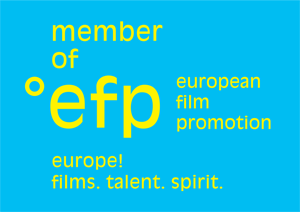La malattia del desiderio (Documentary)
by Claudia Brignone
original title:
La malattia del desiderio
directed by:
cast:
Vincenzo Arena, Francesco Auriemma, Vincenzo Barretta, Salvatore Cacace Luigi D'Onofrio, Luca De Rose, Rossella Garofano, Antonio Garzillo Gaetano Liguori, Carmine Mazzella, Luciana Piccolo
screenplay:
cinematography:
editing:
producer:
production:
country:
Italy
year:
2014
film run:
57'
format:
colour
status:
Ready (01/09/2014)
festivals & awards:
- SalinaDocFest 2014: Competition - Signum Audience Award, Special Jury Mention
- Napoli Film Festival 2014: "Vesuvio Award" for Best Documentary
Naples, Fuorigrotta. In the background is the San Paolo stadium and under “Curva A” is Ser.t: a centre for addictions. In this suburb, which on Sundays gets packed with supporters, there’s a place that holds stories of doctors and patients. I have attended Ser.t for more than two years, listening to the voice of those who were trying to get rid of their addiction, a “desire disorder” as defined by the doctors. Each one seems to have their own therapy, even though it often proves to be but a mere attempt...
DIRECTORS’S NOTES:
Stavo lavorando ad un video sul tema delle dipendenze per un esame
The first time I set foot into Fuorigrotta ser.t (centre for addictions) I was utterly scared. This feeling
has been with me until I’ve decided that all the stories and the people deserved to be given a voice
and a dignity. During my last year at University (about four years ago) I was asked, as part of an
exam, to shoot a video around the topic of “addiction”: a work that would then be published on the
website of the TV programme “La storia siamo noi”. But meeting Dr. Francesco Auriemma, in
charge for the centre for addiction in Fuorigrotta and some of the people attending ser.t, made me
realize that I should have started working on a broader project. So I decided not to hand in any
materials to the university and to start attending the centre more regularly , in order to undersand
the dynamics and relationships that to that moment were completely unheard-of to me.
My point, before I started shooting, was to depict the world of addiction from the cure standpoint.
I didn’t mind going to Scampia, or in any drug-dealing hotspot or even in the so-called “abandoned
house” where kids “make themselves”. I chose that place because any addiction there, from heroin
to cocaine, to alcohol or even to gambling, was treated as a disorder rather than a vice, too
powerful a need to be controlled by a human mind.
I haven’t attended any other centre for addictions, and that is also because I found the place where
ser.t is, Fuorigrotta, iconic. Right under “curva A”, in a former press-room, built in the 90’s for the
World Cup, today is ser.t. When the game is on, that area gets covered in light blue, crowded with
supporters, resonating with chants; yet nearly no one is aware that more than 300 users attend
ser.t.
The film is a choral tale, where the centre itself becomes a scenario for stories and lives. I wanted
to try and understand the mechanics underlying the minds of the addicted because I couldn’t relate
to them, then, thanks to the meeting of Gaetano, historical patient of ser.t and then with Felice, met
at Piazza Garibaldi station, a number of barriers came inevitably to fall. During our long hours
chatting I started to see the boys and girls of the centre not simply as patients but rather as friends.
I felt that they were no longer looking at me and my camera as strangers. This shift happened
gradually even with the doctors, at first only willing to show their better selves. It was a long
process of getting to know each other and getting closer, always listening, never intruding. This
gave me the opportunity to shoot highly intimate situations, such as conversations between doctors
and patients.
I didn’t know when the moment would come that I’d stop filming, until Giuseppe, one of the
protagonists, passed away due to a relapse. After his death I felt it was time to stop filming. “Desire
disorder” is my debut film.




